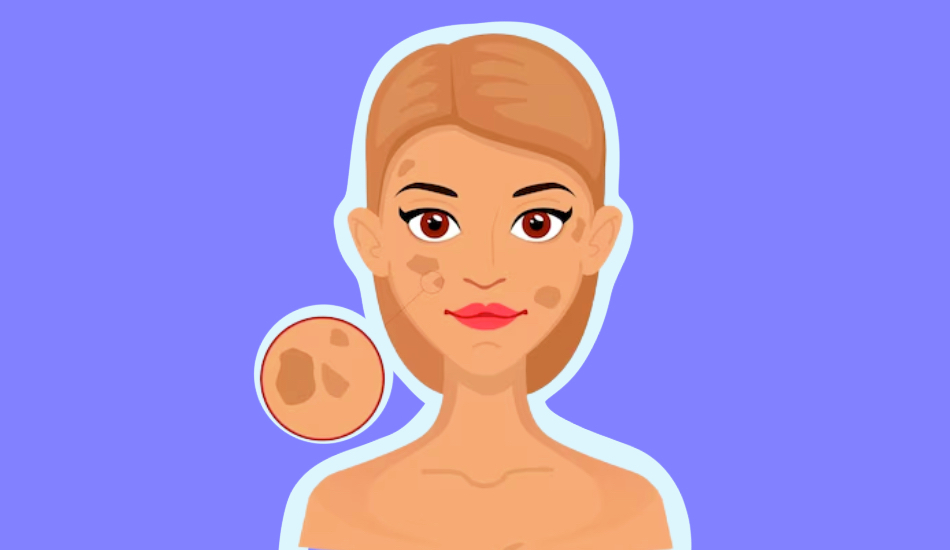Have you ever noticed intriguing patches of lighter skin on your body that seem to defy the natural color palette? It’s as if they hold a secret, a fascinating phenomenon known as hypopigmentation. While the term may sound complex, hypopigmentation is a common skin condition that can affect anyone, regardless of age or background. Here’s everything you should know about it.
What Is Hypopigmnetation?
Hypopigmentation is a condition that affects the color of your skin, hair, or eyes. You see, our skin gets its color from a pigment called melanin, which is produced by special cells called melanocytes. In cases of hypopigmentation, there is a decrease in the production of melanin, resulting in lighter patches or areas of skin, hair, or eyes.
Also Read: Skincare Ingredient Combinations to Avoid, According to a Dermatology Expert
Causes
Now, you might be wondering, what causes hypopigmentation? Well, there are several factors that can contribute to this condition. One common cause is a condition called vitiligo, where the immune system mistakenly attacks and destroys melanocytes, leading to loss of pigmentation. Another cause can be certain genetic conditions or inherited disorders that affect the production of melanin.
Sometimes, hypopigmentation can also occur as a result of an injury, burn, or infection that damages the melanocytes. In such cases, the affected area may lose its color temporarily or even permanently, depending on the extent of the damage.
How It Appears?
So, how does hypopigmentation actually look? Well, it varies from person to person and can manifest in different ways. Some may notice small, light patches on their skin, while others may experience more widespread areas of lighter colour. In cases of hair and eye hypopigmentation, you may observe lighter strands of hair or a change in eye colour.
Harmful Or Not?
Now, it’s important to note that hypopigmentation itself is not harmful or contagious. However, it can have a significant impact on a person’s self-esteem and confidence, especially when the changes in skin colour are more noticeable.
Also Read: Got Inflamed Skin? Try These Skincare Hacks For Instant Relief
Treatments
While there isn’t a cure for hypopigmentation, there are treatment options available to manage the condition and improve the appearance of the affected areas. These may include topical medications, light therapy, cosmetic camouflage techniques, or surgical procedures, depending on the individual’s specific needs and preferences.
If you’re experiencing hypopigmentation or have noticed any changes in your skin, hair, or eyes, it’s always a good idea to consult a dermatologist or a healthcare professional. They can evaluate your condition, provide a proper diagnosis, and guide you on the best course of action.

